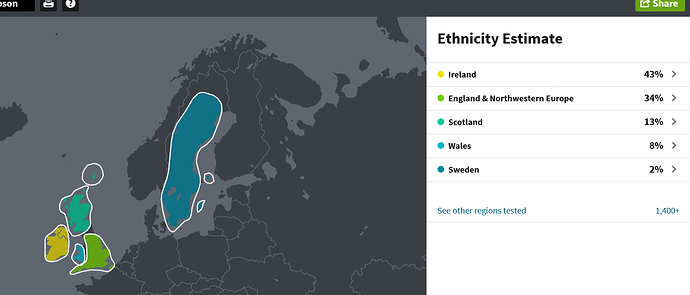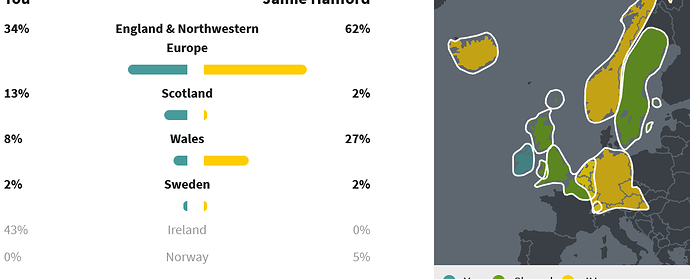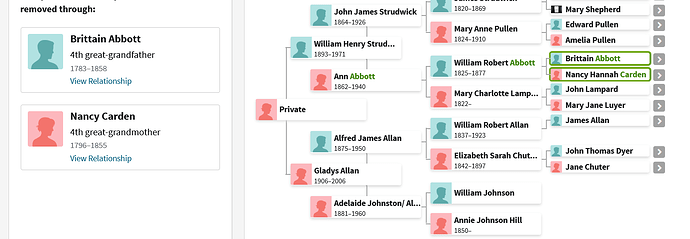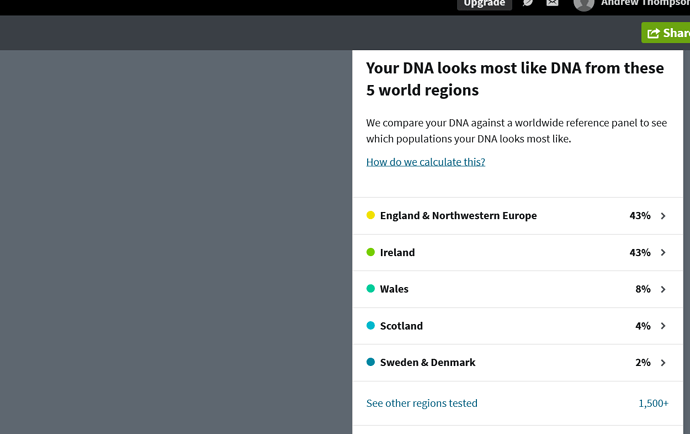In particular, using Ancestry.
I’ve been working on the old family tree since about 2005, and have now decided I need tips from the more experienced. This might be a bit rambling/lengthy, but maybe to get a conversation going…
Over the years, I’ve traced some part of the “family” back to the 16th Century, which I was fairly chuffed about at the time; thatwas during the easy phase. I’ve learnt the rural side is easy to trace, when you have ancestors living and dying in the same vollage locale for nigh on 300 years. ]
The first bit was done using Mormon records, who helpfully digitzed church records (those earnest missionaries who knock on doors, when they are not doing that, they are in chruchyards, taking down names to be posthumously baptized into the Church), and made it all free. Then there were some other free collections like BMD. Then came the Census records, and trial memberships. Then it got Real, when I signed up for a paid membership (still won’t pay for the international membership).
I’ve learnt London families are really difficult to go back before about 1780, when they likely arrived in London.
I’ve uncovered sad stories (a Great Grandfather was born in a workhouse to an unwed 17 year old servant girl), long forgotten family scandel/tragedies (wife of another great grandfather losing a 4 year old son, then promptly leaving for Canada, with her daughter, to marry her brother in law, great grandfather then moving in with the Irish girl upstairs, who then assumes, for reasons unknown, the identity of the runaway wife, before owning up during the 1939 National Registration. A Great Uncle who was a Bevan Boy before running off, getting caught, then given the choice of prison or the army. Another one who was gassed and had to be dragged back to the front. Some had made it; one who was a Fying Officer cadet in WW1 (though didn’t get to fly), ending up as a Cattle Farmer (Manager) in Northern Rhodesia (despite having no experience of farming). You learn about social movement in Britain; its a little awe inspiring to find out about all these people that lead to me. You also can’t help but get a bit angry about the class structure, making even a conservative feel a little s-word (I’m no cleverer than my ancestors, but I had opportunities in life allowing me to gain a PhD and a professional career, whereas all they had to look forward to in life was digging a field or hauling a veg cart).
More recently I had the old Ancestry DNA test (no, I’m not that concerned about the security of the sequence, given the nature of the sample), partly motivated to get some sort of shot to break out of the London brickwall (tracing back to a soldier, likely born around 1780, so of the age to have been potentially part of the wars Britain was in at the turn of the 19th century, or part of the early Imperial forays (the thin hope was evidence of any SE Asian DNA, pointing to an Indian connection, but alas no). Its helped me identify some relatives (the top match being a cousin who I did not know had also done the test, proving it had some validity). I can see other trees through the matching system that have common ancestors (though mostly from a Devon-London lineage), or shared surnames. There are some I can’t see any relationship. There are also enormous numbers of people who’ve paid for the test, and then, thatsit; no tree uploaded, which is very frustrating.
Except for the hope for something non-conventional, I wasn’t all that bothered with the ethnicity assessment, fulling expecting typical “Northern European”. Over time, Ancestry has been tuning their algorithm. Initially it started out as mostly English, with significant Irish and a touch of Norwegian (which later became Swedish). But the latest iteration indicates I am “more” Irish than English, which is a bit of a surprise:
So this is the crux; how to interpret that 43%. I am confident that on my mother’s side, there is no Irish connection (the line is Leicestershire, Rutland, Yorkshire, all rural communities, not industrial towns)
On my father’s side, his mum’s mum was born in London, but with Irish parents (Cork). I can’t call her my Gran, because my dad’s mum died when he was 11 (TB, like many at the time); which complicates things because he hasn’t seen that side of the family since he was 11. So simplistically, my father is “25%” Irish, and I would be 12.5% Irish, only it doesn’t exactly work like that.
Now the think I am pndering, is how much value to place on the percentage value, that’s its maybe pointing to multiple Irish ancestral lines. From the female side, you can only inherit an X-chromosome, but from the male, X or Y (if you are male), simplistically. So I am wondering if that’s pointing to a male line for the “additional” Irish signature.
One old family myth was the story of the Diary of Captain Nolan, that had been lost in the Blitz. Who was Captain Nolan. Louis Nolan was the idiot who went first at the Charge of the Light Brigade in the Crimean War. So I instantly dismissed any family connection, that the story was really about a book about Captain Nolan, who maybe was a bit of a hero in the local East End press at the time.
But it deepens. A distant cousin independently confirmed the Nolan story, and then stated his deceased mum had traced things back to Brutus Babington. Who? The first Bishop of Derry.Londonderry (bit of a git). Nolan was from one of the wealthy Ulster families, but was born in Toronto. His father was a diplomat, and while in Italy, did something that made him persona non grata, and Nolan missed out his chance of a brought commission in the British Army, and was forced to join the Austrian Army , before deserting, and bribing/buying his way into a British Regiment, before perishing in the Crimea. And a 3x grandparent named his kids after Crimean battles, like Inkerman. So, there is a tenuous additional Irish link.
So am I thinking about the numbers correctly? I should really know.

 Have spent quite a lot of time up in Norway since!
Have spent quite a lot of time up in Norway since!



